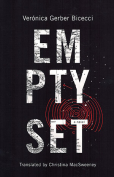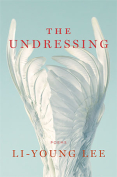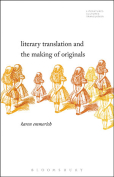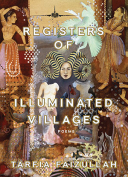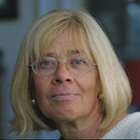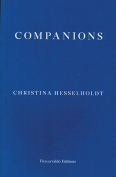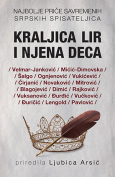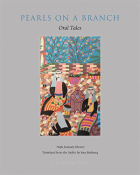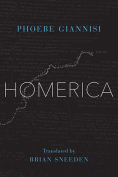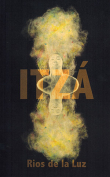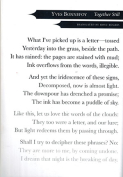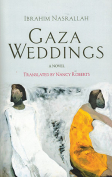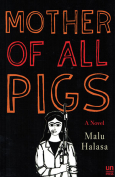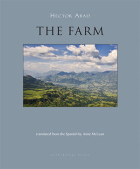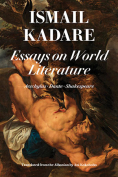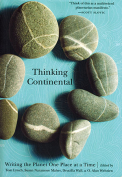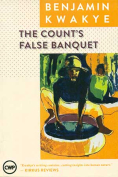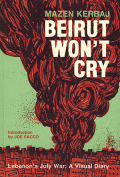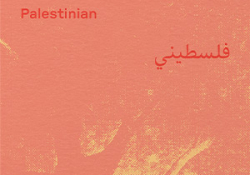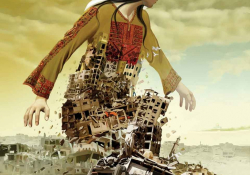Gaza Weddings by Ibrahim Nasrallah
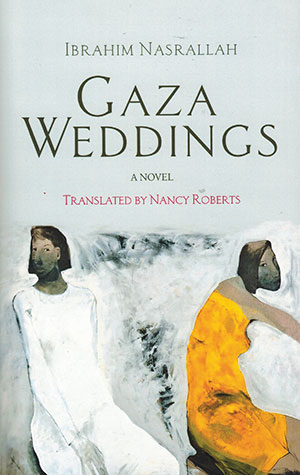 Cairo. Hoopoe / American University in Cairo Press. 2017. 155 pages.
Cairo. Hoopoe / American University in Cairo Press. 2017. 155 pages.
In the poignant and humorous prose of Gaza Weddings, Palestinian poet, novelist, critic, painter, and photographer Ibrahim Nasrallah portrays a contemporary Gaza neighborhood in occupied Palestine. It’s the spare, latest volume to be translated into English in The Palestinian Comedy, an ongoing epic series of novels based on Balzac’s Comédie humaine, which includes Time of White Horses and The Lanterns of the King of Galilee. The action centers on a friendship between Amna, a worker in the children’s trauma unit at Al-Shifa Hospital, and Randa, an aspiring young journalist whose twin sister, Lamis, is in a courtship with Amna’s son, Saleh. Theatrical and cinematic, the tale wields a subtle but powerful dramatic irony, undermining the characters’ struggles as they construct a new reality for themselves while also safeguarding the dignity of each personage amidst a reign of barbarism.
Their conditions deteriorating under brutal Israeli rule, the bond between the two women strengthens as they help prepare for a wedding that will never happen. Amna’s private moments take the form of one-sided conversations with her martyred brother, and we learn that her husband, also martyred, married her in the hospital after being bayoneted while crossing a checkpoint hidden in a coffin.
Randa asks permission to write down everyone’s stories, as when she looks on while two girls among the mourners of an unidentified man, all of whom claim to be his wife, come back to the grave day after day until only one other lady is left, the real widow, at which point they leave, telling the would-be reporter that no matter who turned out to be the bereaved one, they had not wanted to leave her alone.
An air of tragedy pervades this book-length sequence of monologues, and the briskness of Nasrallah’s sentences bears it across to us lightly: “Inside each of us there’s a poet,” Randa observes, “who comes out when we really come face to face with ourselves. When that happens, we start to glow, and we might say things nobody would ever have heard come out of our mouths otherwise.”
Born and raised in the Wihdat refugee camp in Jordan and currently living in Amman, Ibrahim Nasrallah worked first as a teacher while writing his books, then as a journalist for eighteen years. Because of his writings he has faced travel restrictions, book bans, and accusations of blasphemy. In Nancy Roberts’s excellent translation of Gaza Weddings, however, anglophone audiences can read his text, as Nasrallah writes in a recent Culture + Conflict article, “not only because they are sympathetic to my cause, but because the work they are paying for deserves reading.”
Erik Noonan
San Francisco
